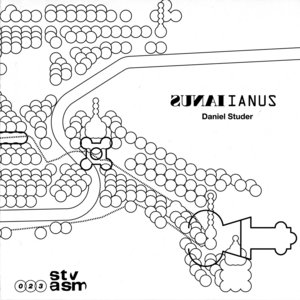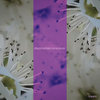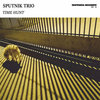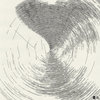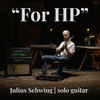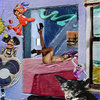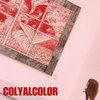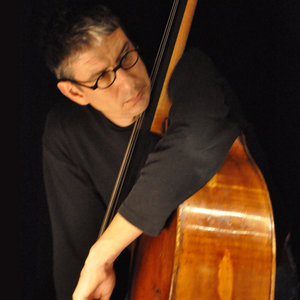IANUS (2004) by Silvia Schiavoni - Jürg Frey - Giancarlo Schiaffini - Alfred Zimmerlin - Daniel Studer
Tracklist
| 1. | Teil 1 | 7:14 |
| 2. | Teil 1 | 9:30 |
| 3. | Teil 3 | 15:05 |
| 4. | Fragment 1 | 3:00 |
| 5. | Fragment 2 | 2:40 |
| 6. | Teil 4 | 13:29 |
| 7. | Teil 5 | 7:36 |
Credits
released January 1, 2004
quintet, voice, clarinet, trombone, violoncello, double bass, composition, improvisation, Rome
The music is only partially written. Interpretation and improvisation are combined. The piece was written for the musicians performing here, who deal with improvisation, composition and interpretation. The texts are taken from "Fasti" of the Roman writer Ovid, excerpts from travel guides, archaeological descriptions and own texts were also used.
The writing of the piece coincides with the lessons in composition given by Johannes Schöllhorn. Discussions about the piece lanus were at the centre of these lessons. Johannes Schöllhorn repeatedly showed me ways to realize my ideas. I am extremely grateful to him for this intensive time. Special thanks go to the archaeologist and friend Clemens Krause. Further thanks go to: Roman Hess, Rene Karlen, Christoph Keller. This piece is dedicated to my wife Heidi Amrein. Rome as a starting point.
quintet, voice, clarinet, trombone, violoncello, double bass, composition, improvisation, Rome
The music is only partially written. Interpretation and improvisation are combined. The piece was written for the musicians performing here, who deal with improvisation, composition and interpretation. The texts are taken from "Fasti" of the Roman writer Ovid, excerpts from travel guides, archaeological descriptions and own texts were also used.
The writing of the piece coincides with the lessons in composition given by Johannes Schöllhorn. Discussions about the piece lanus were at the centre of these lessons. Johannes Schöllhorn repeatedly showed me ways to realize my ideas. I am extremely grateful to him for this intensive time. Special thanks go to the archaeologist and friend Clemens Krause. Further thanks go to: Roman Hess, Rene Karlen, Christoph Keller. This piece is dedicated to my wife Heidi Amrein. Rome as a starting point.
